Category Archives: Useful Tips
What Does a Trauma Cleaner Do?

Trauma clean up is a difficult job for many reasons. A trauma site is where an accident or violent act occurred, leading to injury or damaged property. Working under these conditions is inherently challenging due to the sensitive nature of these events. A trauma scene also requires a complex set of operations to ensure the cleaning crew remains safe and that the work is done professionally and efficiently.
What does a trauma cleaner do? This varies tremendously between projects, but the general process involves preparation, cleaning hazards, followed by conventional cleaning. Here is an overview of what each entail.
Trauma Clean Up Preparation
As the saying goes, preparation is key. Before trauma clean up technicians enter a site, they must first be equipped with all relevant PPE. This may include a face mask, gloves, goggles, or disposable outerwear. Any necessary equipment will also need to be assembled and calibrated before entering the scene.
How do trauma cleaners choose which protective equipment to use? This is partly determined by regulation. Organizations such as ABRA and OSHA dictate minimum safety standards when managing different types of risk. Beyond that, technicians use a combination of site-specific factors and intuition to determine what level of protection is needed.
Once the appropriate gear is equipped, technicians will assess the scene. For trauma clean up, it is often necessary to plan the order of operations. This is to verify that all hazards are addressed responsibly, and that work is completed efficiently.
Cleaning Hazards
The first priority for trauma clean up is addressing hazards. Many trauma sites involve bodily fluids such as blood and vomit. In addition to being unpleasant, this material can be a vector for rare and dangerous diseases. There is also a specialized procedure for disposing of any biohazardous waste.
In addition to biohazardous materials, a trauma site may involve other hazardous materials. This might include broken glass, chemical spills, or damaged machinery. Trauma clean up must be done in a manner that minimizes safety risk, meaning the strategy and approach will vary between locations.
Hazard cleaning is often completed before conventional cleaning starts to minimize the risk to technicians and simplify traditional cleaning work.
Cleaning and Repairs
Work isn’t done when the hazardous materials are addressed. Debris, dirt, and other mess may be found at the scene, which should be fully cleared. Heightened safety precautions may be relaxed for this portion of the project since significant hazards should be addressed by this point.
Repairs may also be required. Bullet holes, broken glass, or damaged drywall are common in trauma sites, especially those involving violent crime. Depending on the nature of the damage, a trauma clean up crew may be able to perform repairs. Subcontractors may also be used depending on the complexity of the work required.
Professionalism and Efficiency
In addition to the technical aspects of the job, trauma cleaners must navigate a complicated and emotional situation. Trauma scenes involve someone being seriously injured or dying. Respect, efficiency, and professionalism are essential to ensure family members, colleagues, or roommates are not upset by the work of the trauma clean up crew.
Discretion is also necessary. Neighbors can become nosy if they hear rumors of a traumatic event. Trauma clean up teams attempt to carry out their work in a manner that limits attention, allowing family members to maintain privacy if they choose to.
Trauma cases often involve law enforcement as well. Police must entirely process sites before any cleaning can be done. Trauma clean up teams may need to work with law enforcement to ensure cleaning can begin as quickly as possible after any investigations are complete.
Finding Trauma Clean Up Experts
Trauma clean up is technical and sensitive work and should be left to professionals. No one wants to be responsible for a trauma scene when they are related to a victim. It is emotional, stressful, and overwhelming. Working with a trauma cleaning crew means you can take part of the burden off your shoulders.
It is essential to work with professional trauma cleaners. Amateur cleaners may be unreliable, not be mentally trained to handle a scene or not completing the work to a high standard. It is critical to work with trauma clean up crews with the experience needed to handle high-priority cleaning projects.
The Importance of Site Clearing Before Construction
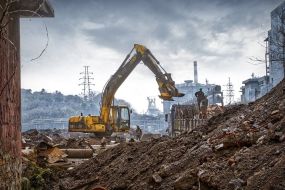
When construction companies look at a parcel of land, they see potential. The beginning of a new building or site that will turn into something great. But before the construction work begins, sites need to be cleared and prepped. That’s where site clearing professionals can help.
Clearing teams specialize in the removal of anything and everything that could impede or slow down construction. This includes rocks, vegetation and so much more. But what specifically do they do? And why do you need dedicated experts to perform the actual site clearing? Read on to learn more.
Why is Site Clearing Necessary?
When construction begins on an uncleared site, the work starts slow. Rocks buried deep in the ground can damage equipment. Vegetation and debris can cause safety hazards and get in the way.
Think of site clearing like primer before painting. It’s the base coat that needs to be applied so that the paint can look its best and be applied easily. Site clearing is that base coat, making a space safer and ready for the infrastructure that comes with a new construction project. This includes readying the space for utility lines, infrastructure, building foundations and so much more.
Finally, site clearing companies have established relationships with disposal facilities, meaning they may have better rates for using these places than regular construction companies, reducing overall fees for getting rid of unwanted debris, etc. from a construction site.
What is Involved with Site Clearing?
Site clearing is more than simply removing stray debris from a space. It is a professional construction service that preps land for future development. It ensures that future construction crews can work more safely and more efficiently than if the land was undeveloped and uncleared.
But what precisely is involved in site clearing? What are the specific things that go into a clearing job? Let’s break down the individual tasks that are often done during site clearing.
Vegetation clearing is one of the main tasks involved in site clearing. As we expand our municipal borders, many companies are starting to develop land with significant vegetation. This can include a large amount of underbrush, but it can include small, wooded areas and so much more. Site clearing professionals use specialized equipment to remove all the vegetation in a space. Trees will be felled, either in sections or wholly, smaller trees and vegetation will be pulled out by hand or with excavators. By the end, the site will be mostly turned soil on which your crew can get started.
Rock removal is often done after vegetation is cleared. This involves removing larger boulders from the ground. Since these rocks can damage equipment and slow down initial construction, having them removed and broken up can make the start of the job much easier. Rocks are often dug out with buckets or excavators and then broken up and disposed of properly.
Finally, there’s the removal of refuse and debris. This occurs in many sites that were previously demolished or unsupervised. Since garbage and waste can accumulate for decades, removing it all can be a challenge for a regular construction crew. A site clearing team can safely remove the waste, including anything dangerous, and dispose of it according to local rules and regulations.
At every stage of site clearing, there is one important step that’s necessary: proper disposal. Since there can be all kinds of materials on a site, from large trees to waste, it all needs to be packed up and sent to the right facilities according to local rules and regulations. Since site clearing teams have connections and relationships with local disposal facilities, and understand the legal requirements for site prep, they can easily remove all debris and ensure it ends up at the right place. Often for less than doing it yourself.
Why Do I Need Professionals for Site Clearing?
The truth is that site clearing professionals understand every step of prepping a site for construction. They understand how to remove the vegetation, debris and waste from a space. They also know where every kind of waste needs to go, whether it’s recycling wood from trees or taking old garbage to the landfill. When you choose professionals, you are getting the work done right, quickly and efficiently. That means construction will start faster and go much more smoothly.
How to Clean Up Trauma Scenes

Trauma cleanup is a complex process where professionals do everything by the book in order to ensure that a scene is fully cleaned after a crime or suicide. Trauma incidents are unlike anything most people have to deal with, as it often involves a loss of a life, whether a family member or personal contact, and they can be either accidental or intentional acts. Dealing with a trauma as a family, especially if it was a suicide can be devastating. Needing to also handle the scene of the incident after the fact can be equally as devastating. Trauma clean ups services are available to take this burden off of the family or friends.
1 – Isolating the Trauma Scene
Due to the nature of traumas, unknown fluids ranging from blood, bile, and any number of other excrements or chemicals, may be found at the scene. Isolating the area is key to dealing with a trauma scene. Without proper testing, there’s no way of knowing what pathogens could have been in someone’s body at their death, meaning any direct contact with their bodily fluids could be hazardous to someone’s health. You cannot allow just anybody into a trauma scene, they must be properly protected with PPE; always plan for the worst case scenario when it comes to chances of contagions.
2 – Calling in the Professionals
No matter the trauma, if it includes blood and bodily fluids, the cleanup process becomes messy, as everything within the scene must be considered a biohazard. The first professionals on the scene are generally going to be first responders, police, firefighters or paramedics, and once their job is complete, there is still a traumatic mess to deal with. It’s down to the homeowner, property owner, landlord, retailer, hotelier or local authorities to deal with the cleanup, and their first call should be to a trauma clean up team so that the process can start quickly, and with due respect to the deceased’s family or public. While trauma is something that is sudden, most commercial or industrial business owners should have a contingency plan in place, so they know who they are going to call immediately after an incident.
Cleanup should never be attempted without the help of professionals. Needlessly putting someone at risk attempting to clean up a trauma scene without proper training and equipment can lead to major health risks, and liability issues.
3 – Take a Sensitive Approach
Trauma scenes deal with the death of a person, and that means there is someone out there that is likely grieving, whether it is a family member, friend, or co-worker. Being sensitive to their feelings is important for any trauma clean up professional, otherwise they can make a painful situation even worse. Even witnessing a trauma scene of a stranger can be psychologically tolling on a person.
4 – Be Thorough with Any Trauma Cleanup
Trauma clean up professionals are trained to be very thorough when it comes to the clean up of a trauma scene. Cross contamination is a major risk, so they take all the proper precautions to ensure nothing dangerous is left behind after the cleaning is complete.
While surfaces may appear clean with just wiping, porous materials are very good at absorbing liquids, so professionals will take a pragmatic view as to whether something can actually be cleaned or must be thrown out. It is always best to be safe, rather than sorry when it comes to pathogen risks. Some things like rugs, carpeting, books and soft textiles may have to disposed of appropriately and replaced rather than cleaned.
5 – Disposal of Biohazards
Anything removed from a trauma clean up site should be considered a biohazard, even the tools and materials used. Trauma specialists are properly trained in the disposal of any biohazards from a trauma site and know what can or cannot be just flushed down a drain.
Trauma clean up can be a dangerous job, so leaving it to the professionals is a must. Trauma specialists have the training, equipment, and mental and physical fortitude necessary to handle the arduous task of cleaning up after an accidental, intentional, or personal trauma.
Two-Step Approach to Suicide Clean Up Service

Suicide is an unspeakably tragic event. Whether it is a family member, roommate, or tenant, it is an emotionally intense situation. This is paired with the complex logistics of working with law enforcement, contacting family members, and dealing with personal affairs. In addition to these issues, someone needs to clean up any mess left by the incident.
Hiring suicide clean up service will ensure that your property goes back to normal as soon as possible. What do these services do? Here is an overview of their two-step approach.
Before Cleaning: Working with Law Enforcement
Before cleaning begins, law enforcement does need to assess the scene. Even cases that are clearly suicides or drug overdoses need to be treated as a possible crime scene. It is essential to follow the instructions of police officers. If the individual is deceased upon your arrival, leave the room and do not touch anything until the police arrive.
While cleaning needs to wait until police have completed their work, you should contact a suicide clean-up service while assessments are underway. This will ensure a cleaning crew is on-site, equipped, and ready to work as soon as possible. Technicians can also discuss clean-up and repairs while police are investigating.
Removing Dangerous Materials and Biohazardous Waste
Once a scene is released for suicide clean-up service, the priority is to remove dangerous materials from the site so technicians can operate more freely. Weapons, sharp objects, and drug paraphernalia that remain at the scene are safely disposed of. Cleaners can then begin to address biohazardous materials.
Suicides, and other traumatic events, often involve significant amounts of bodily fluids. This includes blood, vomit, or fecal matter. Not only are these intensely unpleasant to handle, but they also pose a biohazard risk. Rare and dangerous diseases can be transmitted through bodily fluids, so it is essential that only trained professionals clean them.
Clean-Up and Repair
Once safety hazards of the scene have been addressed, suicide clean-up services can now focus on conventional cleaning and repairs. Rooms should be “good as new” after technicians address them because damage or stains may trigger traumatic memories for the occupants.
Carpeting or wallpaper may have to be replaced in the course of repairs. Blood or other bodily fluids can stain carpeting, especially if they are left for any length of time. Many property owners take this as an opportunity to renovate a room, reducing the association with the traumatic incident.
In cases where a body has not been found and several days have elapsed, there may be a disagreeable smell in the room. This odor may be invisible, but it is essential to address it. A combination of powerful cleaning products and ventilation will address these lingering odors.
Discreet and Sensitive Service
Professional suicide clean-up services aren’t just about the work completed but also about how the work gets completed. Suicide is a highly traumatic and disturbing situation, especially if the deceased is a family member or loved one. There is also tremendous stress from dealing with law enforcement, organizing legal affairs, and managing funeral logistics. Cleaning technicians need to find a way to do their jobs without getting in the way of everything else.
Technicians working in suicide clean-up services must be trained to work in a manner that is respectful to grieving members of the household while doing a thorough job. Cleaning should also be done as quickly as possible so the spaces can be used again. Achieving this balance while remaining sensitive to the family’s needs comes from experience and a high standard of professionalism.
In the case of apartment buildings and hotels, discretion is critical. Some people are inappropriately nosey and will become curious about the suicide. It is essential to minimize attention to the affected unit. Cleaning and renovating also need to be completed as soon as possible so the space can be reused.
Professional Suicide Clean Up Services
Suicide is a terrible situation, and there is no way to change that. Professional suicide cleaning services help make the circumstances slightly easier. While it is impossible for things to ever go “back to normal” after a suicide, clean-up services help you find a new normal so you can move on with your life.
What do Crime Scene Cleanup Do?
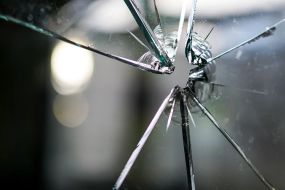
Some of the more gruesome cleanup work done happens at a crime scene. Crime scene cleanup requires special skill in order to be able to stomach the things professionals see on a day-to-day basis, and then be able to quickly, and skillfully clean up the scene to make it a hazard-free, liveable, usable space again.
Professionals that specialize in biohazard cleanup and crime scene cleanup are a rare breed, and the job they do cannot be done effectively by the average person. Although not every crime scene involves families or regular civilians, they dedicate themselves to their services, ensuring that those they serve have someone compassionate, discrete, and comforting dealing with the cleanup after crimes of various types.
The Work
Before being able to understand what it takes to handle cleaning up crime scenes, it’s good to know what a crime scene cleanup company does, and how their role is important in the restoration of an area a crime has occurred in.
First and foremost, as most would have guessed, crime scene cleanup companies are called in by police forces, or families after the investigation for a crime has completed and the scene has been released. Crime scenes can come in many forms, so a professional has to be ready for anything, from blood and viscera to meth labs.
Biohazard cleanup is a big part of crime scene cleanup. Releasing a crime scene back to a family or business, means that the scene has to be habitable without health risks. Biohazards come in many forms in crime scenes, such as blood, bodily fluids, decomposed flesh, illicit drugs, bacteria, mold, biological pathogens, viruses, etc.
There are other aspects people may not think of when it comes to crime scene cleanup. Since a crime scene may have damaged windows, or structure, they may have to board up the crime scene after it’s been released to ensure they can clean everything, then also leave the space in a condition where weather will not further damage it before it can be renovated.
Crime scene cleanup can also sometimes include unattended death cleanup, where a body was discovered and while there is no foul play, professionals still need to be brought in to clean up the decomposition and surrounding areas that have been possibly penetrated with blood and other fluids. Most professionals will also offer their services for suicide cleanup as well, since it has many similar biohazards and cleaning protocols as a crime scene cleanup; this is where compassion, and discrete professionalism comes into play most.
Training and Background Requirements of Crime Scene Cleanup Professionals
Training is a big part of being a crime scene cleanup professional. It requires training not only in proper procedures for cleaning objects, but also safety requirements to protect the technician and others on-site. Being trained in handling dangerous chemicals is also a must, as drug labs are notoriously dangerous and mixing of the wrong chemicals can cause explosions.
Physical endurance is something any crime scene cleanup professional needs when on the job. Scrubbing, hauling cleaning supplies, all while wearing full PPE and respirators can be extremely taxing on the body. Beyond that mental fortitude is a must, as crime scenes can be extreme and cause mental anguish even to those that are just cleaning up. Regular mental health checks will often be done by professional companies to ensure the wellbeing of their technicians.
Crime scenes that involve families will often require at least some technicians to possibly interact with the family, and that means empathy is a must. While they aren’t there to console the family or those close to the victims of crimes, they must have empathy to not make the situation worse. Respect and discretion are key.
Finally, schedule flexibility is required of any crime scene cleanup professional, as crimes can happen at all hours of the day, and cleanup may need to happen in a hurry. Sometimes technicians will need to sacrifice their nights, weekends, or even holidays in order to get the job done.
Crime Scene Cleanup Guidelines
While there are no official regulations in many places for crime scene cleanup, it’s still important that technicians and professionals follow many standard workplace and biohazard regulations and rules that are put into place by The Occupational Safety and Health Administration (OSHA), the National Institute of Safety and Health (NIOSH) and the Department of Transportation (DOT).
What Do Crime Scene Cleanup Companies Do?
Crime scene cleanup companies ensure that after a crime scene has been investigated and released, that the area is safely cleaned up and biohazards disposed of to open the area back up to homeowners, business owners, or the general public. Without their dedication, hazards from crimes could affect others and cause health problems down the road.
What You Should Know About Trauma Clean Up?
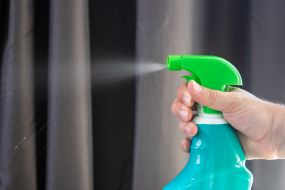
There are many things that we pray we never have to go through or have to do. This could be never having to go to the funeral of a child or witnessing a horrific accident. Another thing that we never want to have to do is clean up a trauma scene. There is a lot of emotional pain that comes with witnessing a traumatic event and there could be major emotional trauma when having to clean up after something has happened to a loved one. There are professionals that are trained in trauma clean up that should be called instead.
What is professional trauma clean up
This is a profession that most people do not even know exists until they need to call them for help. Years ago, the burden of cleaning up at the scene of a traumatic event was something expected to be dealt with by whoever owned the location where it occurred. That could have been a stranger to the victim, or a loved one. This often-caused additional pain and suffering. There was clearly a need for professional help in this niche area, and trauma clean up companies were formed to fill this need. Their employees are trained in the safe, efficient, removal of biohazardous materials, and they work for certified businesses that meet municipal, state and federal standards for disposing of these materials.
People who specialize in trauma clean up have experience in handling contaminated materials, and often have a working relationship with local and federal authorities. These teams also learn to use proper personal protective equipment (PPE), which includes more than just a face mask and rubber gloves. Often, respirators and breathing apparatuses, protective coveralls and even overshoes are required to protect the cleaners or the scene from additional damage and contamination. In depth training about pathogens and biohazards is needed for professional clean up teams too. Having an understanding of what pathogens are and the dangers they pose helps keep technicians safe and allows them to clean thoroughly to ensure a space is decontaminated. Many illnesses, such as HIV and Hepatitis can be transmitted through blood, so safety protocols are very important in this line of work.
Trauma clean up professionals do more than just wiping down surfaces with bleach. The nature of these incidents and the hazardous material that they can produce requires an in-depth cleaning that may involve removing and disposing of flooring, linens and even furniture. Fluids can seep under carpeting and floorboards, and in some cases, it can get stain paint or be absorbed into drywall. While it may look clean on the surface there are health concerns such as pathogen related illnesses, or lung issues from mold if the cleanup is not completed properly. Professional trauma cleaners are trained to ensure that all aspects of a scene are cleaned and that the risk of health hazards has been mitigated.
Who does professional trauma clean up?
This is not an industry that many people are capable of working in. The people employed in this field often have experience with these types of working conditions and can handle the psychological pressure that it can place on a person. The men and women who work as trauma scene cleaners are compassionate and understand the turmoil that people are going through when they call them in. The teams work with loved ones in a sympathetic manner to ensure that they are supported through these difficult times and these professionals lean on their training and personal experiences to guide families through the process.
More than a crime scene.
Although many people hear “trauma clean up” and automatically think of yellow crime scene tape sealing up a room or building where a horrendous crime was committed, it’s not always the case. You may be surprised to learn that these professionals get called into a variety of situations to lend their expertise. Events such as suicide, accidents, natural death, or even car accidents, depending on circumstances, will require specialized cleaning professionals.
Suicide Cleanup: Handle with Understanding, Kindness, and Sensibility
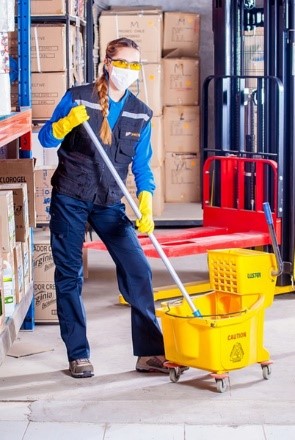
There are very few things in life more traumatic than coming upon the scene where a suicide has occurred. It’s shocking, emotional, and the sensitive situation brings up numerous fears, both immediate and lasting. Whether suicide cleanup services are required in the home, a vehicle, or on the premises of a business, they truly are best left to the professionals. Dealing with blood, bodily fluids and tissues is not only emotionally challenging, but there are also very real and serious physical and safety factors that come into play. In addition, the cleanup process is vastly more intensive than one might assume. There are legal and regulatory issues around removal and disposal of biohazardous materials that must be addressed. Valuable property can be damaged when not properly handled and, there can be long-term health issues and potential disease as a lingering result of contamination should proper sanitization not be taken seriously.
Safety first
There are very real threats to the health and wellness of those exposed to an environment where a suicide has occurred. There are the obvious issues related to exposure to blood including blood borne pathogens such as HIV and AIDS, Hepatitis, MRSA, and others. Then, there is the emotional trauma to consider, including long term PTSD that may settle in later on. When you turn to professional suicide cleanup services, expertly trained technicians arrive properly equipped with all the essential personal protective equipment (PPE) and safe practices with which to approach the scene. They also have the proper equipment, tools, supplies, and products to address the unique clean-up needs associated with a deceased body. This includes the appropriate commercial grade detergents and other solvents needed to ensure the complete removal of all fluids and stains, as well as sanitizing the entire area while protecting any surfaces affected during the incident. By entrusting professional suicide cleanup providers, you’ll avoid the risk of contamination and toxic reactions for anyone who uses the space now, and even into the future.
Protect everyone by trusting the pros
Cleaning up after a suicide is never a DIY scenario. Whether it’s a loved one at home or a complete stranger at a business, encountering a suicide is highly traumatic and can have lasting impacts you may have never even considered. Professional suicide cleanup service providers are not only trained and certified in dealing with each step of the process, they’re also highly experienced. This means they can detach from the situation and handle the task at hand in the most rational way. Equipped with techniques for debriefing with building owners and managers, these professionals can lend a calm support throughout the process for the building owner and caretakers as they deal with the emotion and shock of the situation. Turning this messy work over to expert technicians who move through each step methodically can be highly reassuring.
Taking better care of business provides relief
In addition to the initial shock in encountering a suicide event, there can be additional associated stress when it comes to losing money and time while the suicide cleanup services take place. This is where hiring trusted professionals can provide great relief to an undesirable situation. Because they’re highly trained and prepared for any situation, professional service providers can assess the scene and provide clarity to a complex situation by providing reliable time and cost estimates for the project. They also save substantial expenses by using the latest national and statewide regulated and certified practices, processes, and products to get the labour-intensive job done right, on time, and on budget. There’s relief in the knowledge that professional cleanup technicians help avoid legal issues. Because professional companies and their teams have the knowledge and experience to fully comply with government regulations and insurance requirements, the building owner know they’ll be back up and running safely and effectively in no time.
If you don’t already have a professional clean up service provider in your contact list, look for a company who maintains their Trauma Scene Practitioners License as the State of California requires. It’s also important to ensure they will provide you with the proper documentation to prove the proper disposal of biohazardous waste has been observed and that they’ve complied with the sanctions of the Department of Health Services, OSHA, and any other applicable regulatory agencies. Properly trained experts who work with the best companies know how to handle the physical, emotional, and legal requirements for these extremely sensitive tragic events.
The Importance of Professional Suicide Cleanup Services

For many of us, the sudden death of a friend or family member is one of our worst nightmares. It can be even worse with a suicide, and even worse when you have to live in that nightmare to arrange the cleanup. That kind of trauma is just not something any of us are prepared to handle. Hiring a professional for suicide cleanup services is very much recommended as they can alleviate much of the physical aspect of that heavy burden.
Professionalism & Sensitivity
First and foremost, any reputable service will be very aware of the sensitive nature of the event. Suicide cleanup services are experienced at working with family and friends, as well as law enforcement (if they’re involved). They’ll also know to be very respectful of your privacy and not talk to any media or the public about any details of the event, allowing the family to grieve and process privately.
Contractors that offer suicide cleanup services will also have and maintain a Trauma Scene Practitioners License (or a local equivalent), as well as offer special training and licensing to all of their staff to ensure that they know the seriousness of their work and how to handle the situations with professionalism and care.
Cleanup & Decontamination
While it’s difficult to imagine the type of cleanup from a deceased family member, it’s an unfortunate reality and it’s rarely simple.
Suicide cleanup services will ensure that your loved one’s remains are treated with dignity and the cleanup will be complete. Blood or other fluids will be removed from the space, scrubbed, and disinfected as needed. Cleaners will be thorough in this, recognizing both the biological impact of missing a potential biohazard, but also knowing that a family member stumbling across a tiny, missed spot a week or a month later can leave them re-living their grief and trauma. Professional suicide cleaners will work very carefully and diligently to avoid either mishap.
Death can always cause the risk of a potential biohazard, which are not always visible to the eye. Cleaners are trained in the use of all necessary personal protective equipment and in disinfection protocols. They’ll make sure that your space is safe for occupation and use all appropriate best practices in cleaning all surfaces.
One thing that many people also do not consider, in the abstract, is that your loved one’s death will have a smell. Death smells bad, and that will likely permeate in the space. Suicide cleanup services have several types of treatments to help remove the smells, depending on the sources and surfaces. These methods may include ozone machines, green chemicals, or heat treatments on your space. Some carpets or other surfaces may need to be simply disposed of, but your contractors will advise you if this is necessary.
Safe Disposal
Due to the possible biohazard contamination, disposal isn’t as easy as just throwing remains in the dumpster and dumping the mop bucket down the drain.
The licensing that professional suicide cleanup services maintain will provide training and guidelines for them to safely and properly dispose of biohazardous waste. They’ll know how to make sure that their work, and your space, are fully compliant with the Department of Health Services, OSHA, and any other regulatory agencies that apply to the site.
This Is Difficult, And That Is Ok
Some people might read the above and think that they can just Google the materials needed to do the cleanup and that they can just do it themselves to save a buck. Maybe they’ve never been bothered by blood before when they went hunting, or when they’ve seen injured people before. Or maybe they think they owe the deceased some kind of care or cleanup treatment out of guilt. Cleaning up your loved one’s suicide would be a mistake.
Experiencing a suicide scene, especially of a loved one, is one of the most traumatic experiences most of us can imagine. Trying to work and clean up the site of that event would be torturous, and it could leave permanent psychological and emotional scars. Lean on and trust professional suicide cleanup services to help you in this difficult situation so that you and your family can grieve and remember your loved one together without bringing additional hurt on yourselves.
How Disinfection Services Protect Your Health & Safety

Do you clean and disinfect your home regularly? Do you disinfect your home after someone was sick? With viruses like the highly transmissible and dangerous Covid-19 virus, it is more important than ever to make sure your home is a healthy environment. The regular use of household cleaners is important, but often not enough. If you’re using household cleaners to clean your business, then you should look into professional disinfection services.
Regular cleaning products can only do so much. If there has been a known case of illness or even an outbreak present, then it is imperative to conduct a deep clean and make sure your space is once again safe and healthy for visitors and customers. Even if you are a rigorous and regular cleaner, harmful contaminants can survive in the air and on high traffic services, and these can put people at risk. Here are three ways that disinfection services can protect your health and safety.
1.Protect Others
If you are own a public building or business, disinfection services will help you protect your customers and clients. There are more and more people in the world that are vulnerable to infections and diseases. This isn’t just limited to older people. There is a large number of the population that have hidden vulnerabilities that look healthy. By keeping up regular maintenance and disinfection, you are helping protect these people. You are also helping them feel safe. Covid-19 has caused a lot of medically vulnerable people, who are otherwise perfectly healthy, to no longer feel safe doing normal things. Many of them choose to continue to isolate themselves. Vaccines are not as effective for certain communities of medically vulnerable people, and in some cases, they aren’t working at all. Disinfecting regularly will help keep everyone safe, but will also help provide some peace of mind to those who could get severely ill very easily.
2.Limit Contamination
Contamination can occur in many ways. It could be a food product that contaminates a kitchen with bacteria or simply not cleaning well enough. If a kitchen is contaminated with bacteria, it can cause many people to become ill. The same goes for private kitchens in the home. Contamination can spread from one food to another and from one surface to another, causing it to affect large areas. It’s important to dispose of waste properly, use healthy practices to limit food contamination, and disinfect regularly and thoroughly. Washing your hands and all surfaces continuously is extremely important, but it is not enough. You still need to include regular disinfection services. You will get a deeper clean and will help limit the risk of contamination in the first place. It’s important to dispose of waste, use healthy practices to limit food contamination, and disinfect regularly and properly.
3.Prevent Spread with Disinfection Services
Just like contamination can spread by touching multiple surfaces, other forms of illness-causing viruses and bacteria can spread. Often, people are ill and can be contagious without knowing it. One of the big issues with Covid-19 has been asymptomatic transmission. This means that people were able to transfer the virus to others without even knowing they were sick. It is even more important to make sure you hire professional disinfection services if there was a known case of the virus present in your business before reopening to the public. A temporary closure to disinfect is far easier than having to shut down due to an outbreak.
If you keep your space as clean as possible and disinfect regularly, you will limit the possibility of the virus spreading through your home or business. Washing your hands and all surfaces regularly is extremely important, but it is not as effective as regular disinfection services. The less the virus is present, the less there is potential for transmission and spread.
If you haven’t already been using professional disinfection services regularly, then it’s time to get started. You will be doing your part to help keep people safe, give them peace of mind, limit the spread of virus and contamination, and help keep your business or home a welcoming space for visitors.
Steps for Hiring a Trauma Clean Up Service Provider in Your City
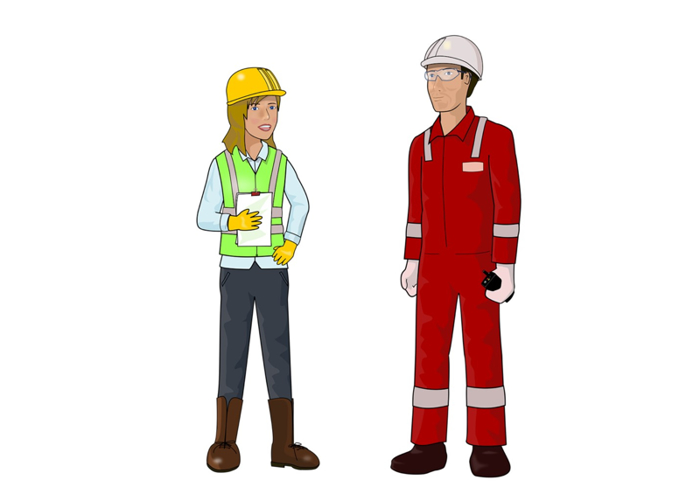
When trauma strikes, safety, response time, skill, and sensitivity are all of the essence. Not only is experiencing an incident stressful and frightening, but the longer it takes to secure the best trauma clean up services, the more its effects will ripple throughout the business or organization. Working with blood borne pathogens, biohazardous waste disposal, hoarding, or meth lab cleanups requires a special set of skills, technologies, tools, and procedures. Because this is a time of intense stress, being aware of the proper steps and questions to ask can make all the difference. Afterall, the right service provider is someone to lean on for guidance and support throughout this difficult time.
Safety first
Any site where trauma or crime have occurred is loaded with dangers. Biohazards, such as pathogens, blood, bodily fluids, and/or toxic airborne substances require a specialized approach when it comes to a successful and effective trauma clean up. It’s absolutely essential that the service provider has a professional knowledge of the processes and approaches that are necessary so that safety remains the largest priority. This includes having thorough training around and properly using any PPE in the clean up of a commercial or residential property, as well as any vehicle involved.
Look for a business that shows proof of their Trauma Scene Practitioners License. They should also hire trauma clean up technicians who have been properly trained and certified to take on the project’s physical challenges, as well as any associated legalities. Experience will also mean these experts understand the sensitivities and emotional aspects of the job.
Time is of the essence
When a building requires trauma clean up, especially if it’s used for business and driving revenue, timing is everything. The best trauma clean up technicians will ensure they’re available right away in order to get things up and smoothly running as quickly as possible. They will also take the time to answer any and all of the customer’s questions, setting their mind at ease. During this first consultation phase, a plan and steps for the entire process should be outlined, including an estimated timeline and cost for all the proper work to be completed. Great service providers take pride and pleasure in serving happy customers, so they tend to try their very best to avoid any surprises wherever possible.
Rely on references and research
Speaking of happy customers, asking around for referrals and customer reviews is always a resourceful tool in selecting the best trauma clean up company. In addition to seeking in-person and/or online reviews, the best technicians will also make customers comfortable enough to ask the questions they need to ask. It’s perfectly acceptable to ask how long the business has been running, how many trauma clean ups they do on average, and what their standards are in terms of training and around certification requirements. These conversations can help instill a good sense of trust that the company is professional, that it will be committed to safety, and that it will ensure the site is cared for and kept clean throughout the clean up process.
Proper paperwork
One of the most convenient parts of hiring the most professionally run trauma clean up company is that they will usually take on the tedious work of proper documentation. These experts are typically happy to provide all their proof of ongoing training and certifications. Not only does this prove that they have all the necessary knowledge and sensitivity required to handle a dangerous trauma clean up, but it also gives the customer a better sense of trust so they can focus on all the other trauma-related impacts their business and their staff now have on their plates.
Finally, proper trauma clean up documentation can alleviate any headaches later on that may be related to the site’s safety, as well as any insurance requirements that may need to be handled. It cannot be stressed enough the potential health and liability risks a commercial property and/or business may face down the road unless these situations are handled with expert and knowledgeable care. Expect a stringent setup; careful decontamination procedures adhering to any OSHA, EPA, Department of Transportation; and county-specific air quality district rules and regulations. This includes proof of proper biohazardous waste disposal and any other necessary regulatory documents.
The most professional trauma clean up companies really do want to see their customers’ businesses up and running in tip-top-shape as quickly as possible.
How Crime Scene Cleanup Works?
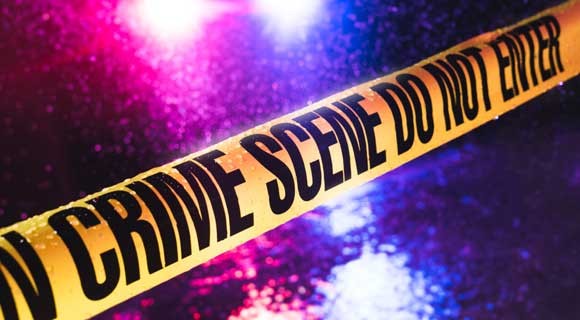
If you have ever watched a crime movie or television show, you have probably seen a fictionalized depiction of a crime scene. Depending on the crime scene, there may be a lot of blood, viscera, or other bodily fluids, as well as any number of other toxic or hazardous elements at the scene. What you don’t normally see is the crime scene cleanup process after the crime scene has been fully processed; by then, in the television show or movie, they have moved on to the detectives hunting down the suspect, or to the courtroom after having caught them.
Crime scene cleanup isn’t a simple process, and it requires professionals in order to properly, and safely remove all the hazards from a crime scene, and then clean up everything else to make the space liveable again. As well, a lot of care has to be taken during crime scene cleanup; the family of the deceased has to be kept informed of the progress, and in some higher profile cases, the media has to be properly managed.
All Crime Scenes Are Unique
Every crime scene is different, even if there are two homicide scenes and the same procedures are in place, the process is going to be slightly different between them when it comes to cleaning up a crime scene. Without the assistance of professional crime scene cleanup teams, things can get overlooked, especially when it comes to cleaning up blood or bodily fluids, and especially if it has had a chance to soak up into floors or under walls and appliances. As well, the more severe the crime, the more cleanup must be done, and the more diligent the cleanup professionals have to be to ensure that the space is safe and liveable once again after the cleanup.
Cleanup Begins After the Initial Investigation Ends
Due to the fact that everything in a crime scene is evidence, the crime scene cleanup process cannot begin until the initial investigation is over, otherwise evidence can be contaminated, making it inadmissible in court. This means that, even though a cleanup could have been easier while fresh, it has to wait until the investigators are gone, making the job even more difficult. Most often, a crime scene will be released a few days after the initial investigation starts, and that’s when the first physical part of the cleanup process begins.
Proper Care When Cleaning up Crime Scenes
Once the process of cleaning up a crime scene begins, those that are working on the scene must take proper care to ensure their own safety, and the safety of those that will be using the area after the crime scene cleanup is done. Almost everything in a crime scene needs to be considered hazardous to the cleanup crew, especially any form of bodily fluids. Blood especially is considered a biohazard due to the fact that there is no way of knowing what germs, pathogens, or diseases the person had. Sometimes, full PPE bodysuits and air filtration masks need to be worn due to smells or other airborne contaminants that may be on the scene. A professional crime scene cleanup company will know the exact safety measures that need to be taken, and they will have the equipment on hand to deal with it.
Cleaning All Biohazards on the Scene
The biohazard on a scene goes beyond just the body and bodily fluids that were involved with the victim. If the body or fluids have been soaking in for several days, or even longer, then the crime scene cleanup professionals have to determine everything that has been contaminated by those fluids and remove them as well. Bodily fluids can easily ruin furniture beyond the point of cleaning, and they need to be fully removed. As well, if bodies have started to decay before cleanup, anything that has absorbed the smells coming from the body may also have to be fully removed.
Any biohazards removed from a scene also have to be properly disposed of; they can’t simply be thrown into the trash or into a dump. Bringing on a professional team of crime scene cleanup specialists not only means the scene gets cleaned up; it also means any hazards are properly disposed of afterwards.
Working on crime scenes can be a troubling task for most, but when you bring in specialized crime scene cleanup teams, you’ll get a professional team that will ensure that the entire scene is cleaned up and disinfected so that repairs can start in a safe environment.
Step by Step Guide for Selecting an Infection Cleaning Service in Your City

The COVID-19 pandemic has caused the entire human population to shift its priorities in every way to exercise caution everywhere. Unprecedented measures have been put in place in an effort to reduce the infection curve of the original virus and its variants. Sometimes, hand sanitizer and masks are all that are needed; other times, more extreme measures are needed, from frequent infection cleaning to outright shutdowns and curfews.
The pandemic has, obviously, been a terrific strain on both the economy and on people’s well-being, but until the numbers can be curbed, some measures will still need to be undertaken. Full economic shutdowns aren’t viable, so the essential services that remain open need around-the-clock infection cleaning.
The importance of everyone’s safety in public spaces is paramount for business owners. Malls, big box stores, cafes and restaurants, public transit, and government buildings are all frequented by hundreds of people every day, all of whom touch common surfaces like doorknobs, door handles, railings, tables, chairs, and counters, creating the potential to spread the coronavirus; frequent infection cleaning is crucial.
Infection cleaning is best left to specialized infection cleaning companies. Undertaking your own infection cleaning without the proper training or tools may not be effective. Infection cleaning companies are certified, trained, well-equipped, and knowledgeable enough to undertake effective infection cleaning in the best way to keep patrons and the public safe.
Selecting an Infection Cleaning Service: A Step-By-Step Guide
In a large enough area, there may be several infection cleaning services near you, especially now that their services are needed more than ever before. If you’re a business owner or if you run any public place, you need to have an effective infection cleaning service at your call. If you’re looking for a new infection cleaning service but don’t know where to start, what follows is a step-by-step guide to finding the best infection cleaning services in your area.
Step 1: Research Local Infection Cleaning Service Contacts
Infection cleaning services can be found as simply as typing “infection cleaning services near me” into Google and scrolling through the listed options. Even if you are desperate, you should never just pick the first infection cleaning service you see listed (even though it may turn out to be the best one). Make a note of the names and contact information of all the local infection cleaning services you can find.
Step 2: Website Research
Every infection cleaning service that’s in your vicinity is going to have a dedicated web page. This is where you can learn about the most important aspects of each infection cleaning service, including:
• How long they’ve been in business;
• What awards they’ve won;
• What relevant credentials and licenses they have, including OSHA and government approval;
• The range of services they provide;
• The cost of these services; and
• How to get in contact with them to set up a consultation or inspection, or to get a quote.
Step 3: Read up on reviews
Infection cleaning services are like any other business that serves the public: subject to scrutiny for the delivery of goods or services resulting in good or bad reviews. For each infection cleaning service, check their star rating on Google or Yelp, and browse through four or five customer testimonials to get a sense of what people think of their experience with each infection cleaning service.
Step 4: Ensure the infection cleaning service you select will serve your type of establishment
Infection cleaning services come in many different forms, and each one may specialize in a wide range of sites, may serve only specific places, or may have exceptions that preclude them from cleaning your establishment. Before making contact, ensure that the infection cleaning company is capable of taking on the task you require, big or small.
Step 5: Contact and interview infection cleaning services
The service you have your heart set on might seem like a good fit on paper, but the devil is in the details. Ask some questions of the infection cleaning contact you correspond with. This will ensure that both of you know the details of the job you need done, how long the service will take, and whether your business operations have to halt for routine infection cleaning before you proceed.
Step 6: Hiring the infection cleaning service
You should now be fully satisfied that you’ve selected the service that can perform the infection cleaning services you need. Now you can hash out the details, such as your budget or any needs or restrictions the infection cleaning service need to meet before they can proceed.
